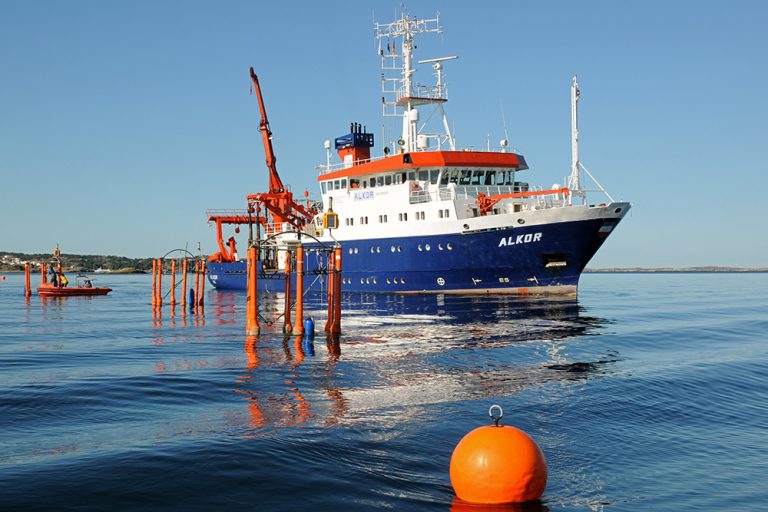New challenges for ocean acidification research
Experts look back at a successful decade and carve out future priorities

To continue its striking development, ocean acidification research needs to bridge between its diverging branches towards an integrated assessment. This is the conclusion drawn by Prof. Ulf Riebesell from GEOMAR Helmholtz Centre for Ocean Research Kiel and Dr. Jean-Pierre Gattuso from the French Centre National de la Recherche Scientifique (CNRS) and Université Pierre et Marie Curie. In a commentary in the journal “Nature Climate Change”, the two internationally renowned experts reflect on the lessons learned from ocean acidification research and highlight future challenges.Over the past decade, ocean acidification has received growing recognition not only in the scientific area. Decision-makers, stakeholders, and the general public are becoming increasingly aware of “the other carbon dioxide problem”. It is time to reflect on the successes and deficiencies of ocean acidification research and to take a look forward at the challenges the fastest growing field of marine science is facing. In the January issue of the journal “Nature Climate Change” Ulf Riebesell, professor for Biological Oceanography at GEOMAR Helmholtz Centre for Ocean Research Kiel, and Jean-Pierre Gattuso from the French Centre National de la Recherche Scientifique (CNRS) urge the international scientific community to undertake a concerted interdisciplinary effort. According to the two experts, future ocean acidification research will have to deal with three major challenges: It needs to expand from single to multiple drivers, from single species to communities and ecosystems, and from evaluating acclimation to understanding adaptation. “The growing knowledge in each of the diverging research branches needs to be assimilated into an integrated assessment”, Prof. Riebesell points out.
For the scientific community, it is obvious that ocean acidification does not occur in isolation. Rising temperatures, loss of oxygen, eutrophication, pollution and other drivers happen simultaneously and interact to influence the development of marine organisms and communities. “The effects can be additive, synergistic or antagonistic and it is generally not possible to extrapolate from single- to multiple-driver responses”, Prof. Riebesell explains. “But with an increasing number of parameters, experiments become increasingly challenging in terms of time, space and costs. Also, it becomes ever more difficult to compare and verify results of similar studies.”
There is now an impressive body of scientific literature on how individual species react to ocean acidification as a single driver. Many calcifying organisms such as corals, mussels or snails will find it more and more difficult to build their shells and skeletons. The extra energy needed for calcification will be lacking for other biological processes, such as growth or reproduction. „But an open question is to what extent results from short-term, single-driver laboratory experiments can be extrapolated to the real world“, Dr. Gattuso states.
As shown in laboratory experiments, evolutionary adaptation to ocean acidification is possible. The larger the population size of a species and the shorter its generation time is, the higher the chances are that it can adapt to new environmental conditions through selection or mutation. “But can adaptation keep up with the fast changes we are experiencing today? Are the organisms able to maintain their functions within the changing ecosystem,” Dr. Gattuso wonders.
To make further significant progress in the future, ocean acidification research has to integrate the knowledge gained in its three diverging branches – addressing multiple stress factors, competitive and trophic interactions, and adaptation through evolution. “This requires an interdisciplinary effort, for example through long-term experiments that examine the effects of multiple drivers over many generations at the community level. “Experiments have to be tightly integrated with field studies and model simulations”, Prof. Riebesell recommends. “A key factor in this process will be that funding opportunities are opened up for large-scale integrative projects, long-term monitoring and international collaborations.” Now that a basic understanding of ocean acidification impacts is developing, it is critical to pay special attention to aspects relevant for society. “This will then pave the way to develop management options and provide science-based policy advice.”
Links:
Intergovernmental Panel on Climate Change (IPCC) box on ocean acidification
Ocean Acidification International Coordination Centre (OA-ICC)
GEOMAR Helmholtz Centre for Ocean Research Kiel
Villefranche Oceanographic Laboratory